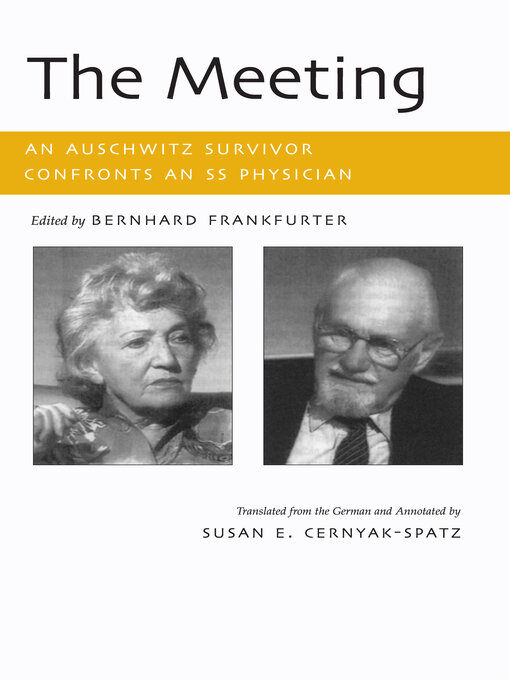Fifty years after the war Dagmar Ostermann, a former prisoner at Auschwitz-Birkenau, and Hans Wilhelm Münch, former Nazi and SS physician, talk face to face.
In this rare interview Münch—the only SS member acquitted during the 1947 Cracow war crimes trial refers to himself as a "victim," claiming that because he had to follow orders he was "no less a victim than his prisoners."
The Meeting grew out of a documentary film in which Münch was first interviewed by Viennese filmmaker Bernhard Frankfurter. As head of the Waffen SS Hygiene Institute Münch had controlled hundreds of lives. Intrigued by Münch's responses, Frankfurter arranged for Ostermann, whose mother was German and her father Jewish, to conduct a book-length interview, for which he provided a concluding essay.
The dramatic structure of the discussion follows the events of the Nazi occupation chronologically. As Ostermann initiates questions regarding reasons for Münch's involvement (Was it a conscious endeavor? Did he participate willingly?), the book adds important new information to the testimonial literature of the Holocaust.
- New eBooks
- Georgia Authors
- African American History & Literature
- Try something different
- Free Comic Book Day is May 4th
- See all
- New audiobook additions
- Audiobooks Under Three Hours
- Audiobooks Under Six Hours
- Try something different
- Available now
- Family Road Trip Audiobooks
- New teen additions
- See all
- Favorite Magazines
- Crafting & DIY
- Home & Garden
- News & Politics
- Business & Finance
- Celebrity Gossip
- Just Added Magazines
- See all

